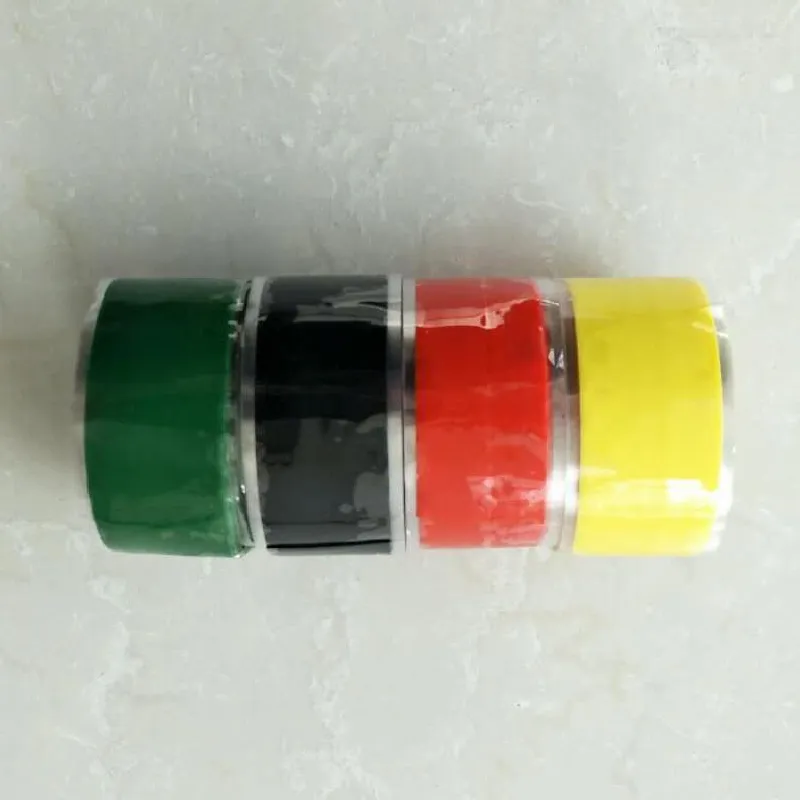The Advantages of Butyl Rubber Sealant Tape A Comprehensive Guide
In the realm of construction and automotive applications, the materials and methods used can significantly influence the effectiveness and durability of various projects. One lesser-known yet incredibly effective material is butyl rubber sealant tape. This article delves into what butyl rubber sealant tape is, its benefits, applications, and why it should be your go-to choice for sealing needs.
What is Butyl Rubber Sealant Tape?
Butyl rubber is a synthetic rubber manufactured from isobutylene and isoprene. The resultant tape is known for its strong adhesive properties and is used primarily for sealing applications. Characterized by its thick, sticky consistency, butyl rubber sealant tape is non-hardening, meaning it maintains its pliability over time, which is critical for many applications where movement and expansion are expected.
Key Advantages
1. Excellent Adhesion Butyl rubber sealant tape boasts superior adhesion properties. It sticks well to a variety of surfaces, including metal, glass, wood, and most plastics. This versatility ensures optimal performance across numerous applications.
2. Waterproof and Weather Resistant One of the standout features of butyl rubber tape is its impermeability. It creates a strong water barrier, making it ideal for outdoor applications and areas exposed to moisture. This waterproof characteristic helps in preventing leaks and prolonging the life of structures and vehicles.
3. Temperature and UV Resistance Butyl rubber can withstand extreme temperature fluctuations and is resistant to UV radiation, ensuring it doesn’t degrade when exposed to sunlight. This quality makes it perfect for both indoor and outdoor applications, as it won’t lose its effectiveness regardless of environmental conditions.
4. Flexibility and Conformability The inherent flexibility of butyl rubber sealant tape allows it to conform easily to irregular surfaces and shapes. This can be particularly advantageous in complex construction scenarios where traditional sealing methods might struggle.
butyl rubber sealant tape

5. Longevity Unlike other tape products that may lose their adhesive properties over time, butyl rubber maintains its strength for many years. Its durability makes it a cost-effective solution as it reduces the need for frequent repairs or replacements.
Applications of Butyl Rubber Sealant Tape
Butyl rubber sealant tape is utilized in a myriad of environments, showcasing its versatility
- Roofing It is commonly used in the roofing industry to seal joints and seams, preventing leaks and water infiltration. - Automotive Butyl tape is frequently employed in the automotive sector for sealing windshields and other components where moisture control is vital.
- HVAC Heating, ventilation, and air conditioning systems also utilize butyl rubber tape to seal ducts and prevent air leaks.
- Construction It can be used to seal joint penetrations, flashing, and other elements to ensure buildings are airtight and energy-efficient.
- Electrical The tape is ideal for insulating and sealing electrical connections, resisting moisture that can lead to short circuits.
Conclusion
Butyl rubber sealant tape is a high-performance material that offers exceptional benefits for both industrial and DIY applications. Its strong adhesive properties, flexibility, waterproof nature, and durability make it an invaluable tool in a variety of settings. Whether sealing roofs, automotive components, HVAC systems, or ensuring effective insulation, butyl rubber sealant tape stands out as a reliable option. Investing in this versatile tape not only enhances the longevity and effectiveness of your projects but also promises peace of mind knowing that you have chosen one of the best sealing solutions available.
-
XIANGFAN Rubber Tape-Ultimate Solutions for All Your Insulation NeedsNewsJun.24,2025
-
XIANGFAN Rubber Tape-Protection for Industrial and Residential ApplicationsNewsJun.24,2025
-
XIANGFAN Rubber Tape: Superior Safety and Sealing for Demanding EnvironmentsNewsJun.24,2025
-
XIANGFAN Rubber Tape: Reliable Solutions for Every Electrical ChallengeNewsJun.24,2025
-
XIANGFAN Electrical & Industrial Tape: Powering Reliability Across IndustriesNewsJun.24,2025
-
XIANGFAN Electrical & Industrial Tape: Excellence in Every ApplicationNewsJun.24,2025
